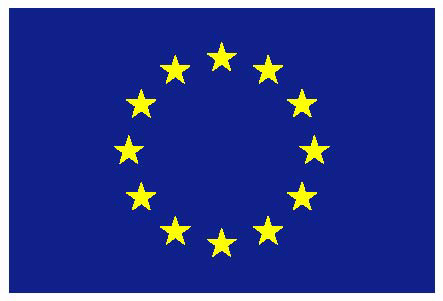Technical Advisory Board
Third TAB meeting
Date: December 19th, 2013
Location: Brussels Airport Meeting Centre, Box 75, 1930 Zaventem, B-1930 Brussels Click here for a map
Agenda
11.00 Morning session
13.00 Lunch break
14.00 Afternoon session
15.30 Coffee break
17.00 End of the meeting
Following documents will be presented at the meeting
- Dimitri Papadimitriou, Didier Colle, Pieter Audenaert and Piet Demeester (2013) Geometric Information Routing. In Proceedings of Seventh IEEE International Conference on Advanced Networks and Telecommunication Systems (ANTS) 2013 To appear. Chennai, India, December (pdf )
- Davide Careglio, Dimitri Papadimitriou, Fernando Agraz, Sahel Sahhaf, Jordi Perelló, Wouter Tavernier, Salvatore Spadaro, Didier Colle, "Development and experimentation towards a multicast-enabled Internet", Research report, Jun. 2013 (pdf ).
- Experimental analysis of routing schemes against policy dynamics, Deliverable D2.4 (available on demand).
- Matthieu Latapy, Elie Rotenberg, Christophe Crespelle, Fabien Tarissan (2013) Measuring the Degree Distribution of Routers in the Core Internet (pdf ).
- D. Papadimitriou, D. Careglio, F. Tarissan, P. Demeester, "Method of reliability and availability analysis", Proceedings 5th International Workshop on Reliable Networks Design and Modeling (RNDM), co-located with ICUMT 2013 Congress, Sep.10-12, 2013, Almaty, KZ (pdf ).
Informational material
- Cyril Gavoille, Christian Glacet, Nicolas Hanusse, David Ilcinkas, "On the Communication Complexity of Distributed Name-Independent Routing Schemes", Proc of 27th International Symposium on Distributed Computing (DISC). Oct. Springer, page 12 (pdf ).
- D. Papadimitriou, D. Careglio, P. Demeester, "Performance analysis of multicast routing algorithms", 2014 International Conference on Computing, Networking and Communications (ICNC), February 3-8, 3014, Honolulu (Hawai), United States (pdf ).
Presentation material
Activities and TAB Meeting Reports
Report December 2013 Meeting
Report December 2012 Meeting
Report June 2012 Meeting
Mission
The mission of the Technical Advisory Board is to provide guidance and advises on topics such as routing protocol deployability conditions, and possible routing system migration path(s), in such a way that the EULER project results can give suitable answers to the operational community problems for what concerns the Internet routing system.
The activity as EULER's Technical Advisory Board member will consist of attending the meetings of this board (1 or 2 per year), which will be co-located with the periodic industry workshops (usually every 6 to 9 months) that the project organizes to compensate for the absence of operators as part of the EULER consortium. The expenses to attend these meetings will be covered by the EULER project.
Members
- Antonio Manzalini, Project Manager at Telecom Italia, Italy
Specialties. Future Internet architectures and business ecosystems, self-management and control, autonomic and cognitive networking, complex networks, Industrial Mathematics.
Short bio. He received the M. Sc. Degree in Electronic Engineering from the Politecnico of Turin. In '90 he joined CSELT, which became Telecom Italia Lab. He started with activities on technologies and architectures of future optical transport networks. He has been awarded 5 patents on network and systems. He was author of a book on Network Synchronization (for SDH) and his RTD results have been published in several papers. He has been active in ITU as Chairman of two ITU-T Questions. He has been actively involved in several EURESCOM and European Project. He was Project Manager of the two projects on optical networks: FP5 IST Project LION, FP6 IST NOBEL.In 2003 he was appointed as member of the Scientific Committee of Centre Tecnologic de Telecomunicacions de Catalunya. On 2006 he has been appointed as Project Leader of the FP6 FET ICT Project CASCADAS, on autonomic networks. In 2008 he has been awarded with the International Certification of Project Manager by PMI. He is joining the Strategy Dept. of Telecom Italia (Future Centre). His current research interests are in theoretical foundations for enactive networks, primarily for design and management of future networks, and the interplay between stability, feedback control, computing and communication. Additional interests are in multiscale dynamical systems and games, principles of computational neuroscience. - Pedro A. Aranda Gutiérrez, Technology Specialist at Telefónica I+D, Spain
Specialties. Communications networks and interdomain interconnection, routing protocols and Future Internet, research publications. Short bio. He received the M. Sc. Degree in Telecommunications Engineering from the Technical University of Madrid. In 1989, he joined Telefónica I+D (TID) and started activities on the development of control modules for the RECIBA broadband demonstration platform and of the ATM-SDH155 line termination card for the HP Broadband Series. After working on the deployment of the Telefonica's transatlantic IP links between Spain and US, Pedro worked on the inter domain infrastructure for different IP deployments. In 2002, he was appointed as TID internal leader of IST-INTERMON, IST-MOME and IST-NETQOS projects related with IP QoS measurement. In 2007, as TID internal leader, he participated in the IST-4WARD project on Future Internet, specialization in Interdomain Interfaces and Interprovider relationships. Currently, he is participating as TID leader in the IST-SAIL project. - Nicolai Leymann, Chief Architect at Deutsche Telekom, Germany
Specialties. Next Generation IP-based Network, integration of technologies and evolution towards IPv6.
Short bio. He is working in his 15th year for Deutsche Telekom as a chief architect for IP based networks. He is responsible for the evolution of the existing network architecture. His major focus is the architecture of the upcoming Next Generation Network of Deutsche Telekom, moving the service creation towards the edges. His work includes the integration of technologies - eg. IP-Multicast, VPLS etc. - in MPLS networks and VPN scenarios as well as the evolution towards IPv6. Mr. Leymann is responsible for several international projects related to network architectures and is speaker on many international events related to IP networking. Nicolai is member of the Ethernet Executive Council and board member of the OpenIPTV Forum. - Jerome Galtier, Researcher at Orange Labs, France
Specialties. Expert in optimization and algorithmics for networks.
Short bio. He graduated from the Ecole Normale Superieure in 1995. He received his PhD in Computer Science from the University of Versailles Saint-Quentin. In his deissertation, he studies irregular data structures coming essentially from numerical analysis, using graph separators. He then worked at INRIA on graph theory on a postdoctoral position. Since then he works on operations research with France Telecom, where he has been appointed in 2008 as a Chief Engineer of the Corps of Mines. He also received his habilitation the same year. In 2009 he was appointed as an "expert senior" label from the SEE. Dr. Galtier published over 10 articles in international journals and 30 articles in international conferences. His main subjects of research concern graph theory, wireline and wireless networks, mathematical optimisation, community detection and intelligent transportation systems. - Thomas Beckhaus, Senior Manager, Deutsche Telekom, German
Specialties. Responsible for the network architecture of the fixed/mobile network of the converged fixed/mobile business unit.
Short bio. He has joined Deutsche Telekom in 1996. Since 2004, Thomas is responsible for the technology architecture of the Triple Play enabled IP/MPLS network of Deutsche Telekom. Thomas has designed the Seamless-MPLS approach consisting of access, aggregation and backbone and he was involved in the first GbE based mobile backhaul installation within Deutsche Telekom. With the extension of 3G/4G to additional LTE-Advanced capabilities, he is defining the network architecture to enable the platform to satisfy the extended requirements of an LTE-Advanced mobile backhaul and optimize for mass market support.




